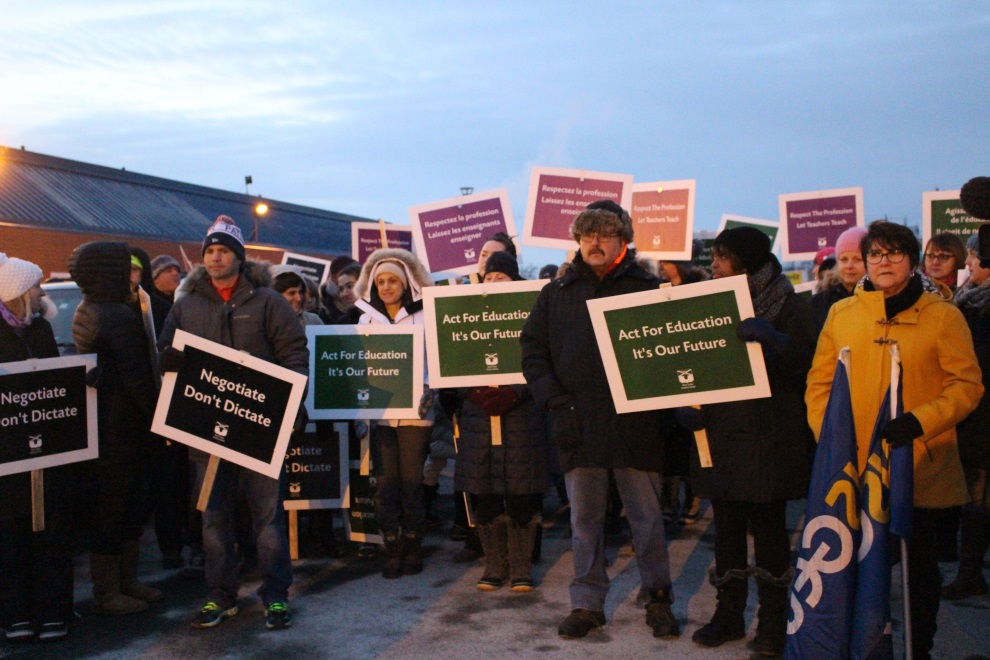Education
Nova Scotia teachers say no to tentative agreement
Over 78 per cent of voters were against accepting the agreement

caption
Teachers and their supporters gather at last month's rally outside the Dartmouth Sportsplex.
caption
Teachers and their supporters gather at January’s rally outside the Dartmouth Sportsplex.Members of the Nova Scotia Teachers Union (NSTU) voted firmly against last month’s tentative contract agreement Thursday.
“It’s clear our members are frustrated,” said teachers’ union president Liette Doucet in a media release.
“They deserve better and what government offered in this agreement doesn’t go far enough in addressing the real classroom concerns that affect teachers and students.”
The statement also says 78.5 per cent of their members voted to reject the agreement. Voter turnout exceeded 100 per cent according to the union, because substitute teachers working today were also allowed to vote. More than 75 per cent of voters had cast their votes before noon, the NSTU website says.
Asked on Thursday about the vote before the results were tallied, several parents said they would support the teachers no matter how the vote turned out.
“We have a child that struggles, not as much as some,” says teacher supporter and parent Sherri Lee.
“I’m worried things will get worse as he enters junior high and high school.”
She was hoping teachers would vote against the contract, and says she would still support them if they decided on a full strike.
“Short term pain for long term gain,” she says, adding she knows it would cause parents who don’t support the teachers in the dispute to become upset.
“Wouldn’t they rather see children reach their full potential?” she asks. “Those kids will be making decisions for them one day.”
Amanda Lawlor has three children in elementary school, all with some special needs. She anticipated the vote would be more divided this time.
“I think they are wearing down and that they feel support is waning some,” she says.
Compared to the last tentative agreement vote in October of 2016, teachers were actually more united. Voter turnout in October was 94 per cent, and they voted 70 per cent against the tentative deal.
Lawlor says she personally was hoping for a no vote as well.
“I don’t think this contract offer is fair to them or to the children,” she says. “I see how the lack of support in the classroom affects [students] and the staff.”
Education and Early Childhood Development Minister Karen Casey released a statement saying she found the results “disappointing for students, parents, and government.”
She says the contract “provided a fair wage offer and showed we were willing to make further investments in classrooms.”
The vote comes after Wednesday’s release by provincial NDP that shared details they had received from a freedom of information request. According to the release, provincial Liberals had been planning to shut down schools, even after the teachers’ union announced work-to-rule would not result in school closures. As well, the release says the Liberals did not plan to provide child care centres or parents extra funding to cover the additional costs of the lockout.
Doucet says she doesn’t know what the government’s next steps will be.
“We do know that our work-to-rule job action will continue,” she says in Thursday’s release. “We don’t know if [the province] will agree to go back to the negotiating table.”
Teachers have been in legal strike position since Dec. 5 after voting 96 per cent in favour of strike action, the release concludes.

